- Home
- Mary Anne Kelly
Keeper of the Mill Page 7
Keeper of the Mill Read online
Page 7
“What sort of treasure?” Mara pressed.
“A treasure with a curse, no less,” Puffin said.
“What fun!” Isolde said. “I knew there was a ghost. I never knew about the curse!”
“A ghost, too?” Claire smiled.
“What rubbish!” Fräulein Wintner said. “Wartime gibberish. Made up to keep the marauding peasants away from the pottery.”
Isolde looked up at Claire. “You know there really is some valuable pottery here. Not that you’d know it from the look of it. Old dusty stuff. Right up your alley.”
“Thanks a lot,” Claire said. A man walked up the curved path toward them, meandering into the lengthening shadows. He came up past the beautiful black car with running boards. It took a few moments for Claire to realize it was Temple Fortune, crunching the drive pebbles with long strides, his slender hands loose and swinging, the burgundy cashmere scarf he seemed to wear always still tucked casually in his breast. Did he consider himself delicate? She liked his hair, she thought, brown and soft. A little long, it was true. A little too attractive to every half-baked romantic female. She couldn’t imagine anyone looking at him and not thinking he was, well, gorgeous. That was the idea, she supposed, annoyed. Until now, she could only watch him from afar. If he got too close, she was careful not to let her giveaway eyes meet his. Nor he (or did she imagine it?) hers.
He came along, and for a moment she forgot who she was; forgot, for that matter, who he was. She half-expected him to walk directly toward her, to her chair. It was almost with a jolt that she watched him stop and lean over Mara Morgen.
Mara Morgen, the film star, seemed nervous and, Claire thought, hardened since the days when she was Munich’s most-sought-after face. Well, all those cigarettes wouldn’t have helped. And the high life in Europe was a hard life. Especially, she imagined, with a man as attractive as Temple Fortune to keep up with. Claire felt her own face liquefy and disassemble when he got close. He made her lose her structure. She could feel her features melting and wobbling out of position just when she would have liked them to stay put. They refused to reorganize. A dreadful state for a grown woman to be in. Claire panicked. A dangerous state.
“What’s this?” Isolde saw finally what had been set down in front of her.
“It’s just some food. I thought you might need something.”
Isolde pushed it away with disdain. “I couldn’t eat a thing.”
Ashamed of her appetite, but famished enough to overlook it, Claire seized the mouthwatering O-Bazda and dug in. This was a disgusting-looking, but curiously exquisite-tasting, mixture of battered Camembert, chives, paprika, garlic, and butter on sturdy rye bread. She then helped herself to a healthy draft of Isolde’s stein. God, that was good. She felt better right away.
Puffin Hedges was performing an epic of film-business amusement with Temple as the hero, to distract them all. Fräulein Wintner burst into a fit of hysterical laughter.
It occurred to Claire that all of what was being said was directed at, and for, Blacky. He was, she realized now as she never had done in her own self-important, independent youth, profoundly wealthy. Suddenly he, Blacky, demanded in a loud voice, “What sort of a name is Temple Fortune?” He didn’t quite slur his words, but everyone knew he’d had enough.
Temple Fortune smiled calmly back. Obviously this was not the first time this question had been put to him.
Puffin, as was his effete English schoolboy way, answered for him. “Temple Fortune was the address we were staying at in London when we had our first break with film, isn’t it, love?” Temple answered with a wink, enjoying this. His eyes, green as money, smiled calmly back. He liked to recall those happy first days of success and hard work. “It started as a joke, you know. Sort of a giggle. But it caught on, didn’t it? Yes, yes, those were the days.”
“I see.” Blacky wobbled his head at them belligerently. “You named yourself after your neighborhood.” He turned to Claire. “That would be like you calling yourself Richmond Hill, wouldn’t it?”
“Yes.” She laughed uncomfortably. What was up? Apparently she was too impressed with this film business for Blacky’s liking. He might be in love with Isolde, but he liked it best when all the gals were in love with him. “But that’s no more silly than naming someone Mr. Rosary Beads. That’s what the Germans did, after all, making the Jews take names of common objects. Rosenkranz means ‘rosary beads.’ Hello, Mr. Rosary Beads.”
“That’s not the same thing at all.”
“No, but it’s certainly as silly,” Claire said sweetly. She liked to remind him every chance she got that he shared the lion’s blood. It never shut him up, but she enjoyed indulging so sanctimonious a compulsion.
“No worse than Puffin Hedges, eh?” Puffin jabbed Fräulein Wintner with his elbow. “Not even we remember how that got started. We were pretty spaced out in those days, eh, Temple?”
“Well, you look like a Puffin,” Blacky said.
“So what’s your name, then?” Claire said to Blacky. “Clearly Redundant?”
“But my real name is Almut,” Puffin confided morosely. “Harry Almut Brown. Beat that if you can. I mean, we just had to do something about that.”
“Maybe I should have changed my name to Richmond Hill,” Claire, compulsively arbitrary, said, mulling it over. “I can imagine me quite famous with a name like that.”
Temple smiled at her and she smiled back. A dizzying rush swept through her.
Mara Morgen narrowed her eyes at Temple Fortune. “You didn’t tell me when you talked me into coming here that we would have a murder, too.” She said it lightly but accusingly.
“Mara!” Temple Fortune said.
“Yes, Mara!” Puffin Hedges’ eyes darted back and forth from one to the other, then across to Blacky. “What a hideous thing to say!”
“The poor dolt slipped,” Temple said. “Even the German Polizei said so.”
Aside, Puffin said, “And there’s nothing as suspicious as the German Polizei.”
Mara shrugged. “It could have been murder. Murders have been known to be made to look like happenstance.”
Temple stood with his hands on his hips. “Well, we’ll know in a few days. They’ll have an autopsy, I imagine. Someone’s bound to come up with the theory he was after those sixty blue-white diamonds.”
Claire tried not to choke.
“That doesn’t have to prove anything,” Mara pressed. “He could have been pushed. Tzack!” She thrust the air before her forward, gaining everyone’s attention. “Although that guardrail is so low it would be easy to fall even if you weren’t pushed.”
Isolde mopped her perspiring face with someone else’s napkin. “You ought to be whipped,” she said, narrowing her eyes at Mara.
“I’d like to see that.” Puffin’s eyes sparkled.
“Hans was no poor dolt,” Mara continued in her unruffled, accurate, if thick-accented, English. “He was a very capable megalomaniac.”
“What we used to call,” Puffin murmured, “a bully.”
Temple had positioned himself behind Mara. There he stood, wobbling her chair with his foot, a pained look on his face. “A little consideration for the dead, if you don’t mind.”
“Oh, right,” Puffin said. “Wouldn’t want to be chucked off the premises. Especially now we’re so close—”
A knife-sharp look from Temple stopped him from completing that thought. Claire wondered what he’d been about to say.
“I wish that dog would come away,” Temple said despairingly.
“It’s very upsetting,” Mara agreed.
They all looked over at the dog standing there in the drive.
“Come, old boy. Come, fellow.” Temple slapped his thigh, expecting to be obeyed, but the dog stayed still, his tongue out and panting, his eyes heartrendingly glued to the spot from which Hans had fallen. There was a collective sigh from everyone.
“What will happen now?” Puffin Hedges wondered aloud.
Hearing no one
answer, Fräulein Wintner ventured, “There will be a service at the Nord Friedhof, the North Cemetery. Then he will be cremated and buried.”
“What? Both?” Claire asked.
“My God, he’s barely cold!” Temple clucked.
“Well, that’s the way we did it with his wife, Imogene, when she died,” Fräulein Wintner cried defensively. “Didn’t you just ask what happens now?” Fräulein Wintner seemed to be coming apart at the seams.
“Of course we did, dear.” Puffin patted her hand. “You just pay him a never you do mind.”
“Tell you what,” Blacky suggested heartily. “We all could do with another round. My treat.”
No one moved or said anything. Everyone was still very much in shock, Claire supposed, for all their snappy retorts. No one refused a drink, either.
“What an unbelievably terrible thing to happen on such a beautiful day,” Blacky muttered. “A catastrophe.”
“Yes,” they all agreed, looking out over the soft green hill Hans would never see again. Friedel the gardener stared madly into his beer. He gripped the table edge. He looked, Claire feared, much like her son did a minute before becoming sick. There was something endearing about the fellow, in his rumpled overalls and muddy clogs.
“Such flowers you have here,” Claire addressed him. “So beautifully thought out! Is it Stella Gabriella who takes an interest in the garden?”
“Oh, no indeed,” Fräulein Wintner interrupted before Friedel could answer. “Fräulein Stella is much too absorbed in her pottery. That’s all she cares about. She has a kiln in the house out back, you know.”
“Doesn’t she do that Japanese-style pottery?” Puffin asked. “What’s it called? Raiku? Raku?”
“I know she prepares her own mud,” Fräulein Wintner informed them with a mixture of resentment and pride. “That’s not typical, you know. She is”—her face took on the concentrated effort of quotation—“‘of the pure form.’ There’s a lot of them out in Diessen, a town out on Ammersee, the lake. Famous for potters. Like a cult, they are. Ever after the quest for the perfect pot. Fräulein Stella is their most important potter.”
“It’s Cosimo who does the garden,” Friedel finally managed.
“A right lunatic he is about the roses, too,” Puffin added. “Almost bit my head off when I tried to put Mara in the middle of them. Remember, dear?”
“It wasn’t as though we’d have harmed them,” Mara complained.
“That’s right,” the lighting man added. “We was ever so careful.”
“A lunatic,” Puffin kept on. “Flowers and the bloody piano, nothing else.”
“Oh, well.” Temple Fortune shrugged. “He’s very good at both, isn’t he? Marvelous, really …”
It is true, Isolde agreed silently. He was superb. She wondered if he would be recovered enough emotionally to play for the wedding.
Claire gazed at Temple Fortune. She liked a man who saw no need to justify a life of passion. He smiled boyishly back, ducking his head shyly and meeting her, only for a moment, with his eyes. They both looked guiltily away.
“What’s this?” Puffin Hedges pursed his lips. He didn’t miss much. “So Claire—it is Claire, isn’t it?” he interrupted this disturbing involuntary pink they both had and peered at her from across the table. “We hear that you are a photographer.”
“Ah,” said Claire, not knowing what else to say.
“Really? What is your sphere?” Mara raised her chin and squinted unflatteringly, as though small glasses might be perched upon her perfect nose at other, more private, times.
“Oh,” Claire murmured, “the unusual.”
“Well, this is certainly extraordinary enough.” Puffin made a lemon face and batted collusive eyes at Mara. His tone was baiting and unpleasant. “Perhaps you should be photographing this!”
Blacky moved disapprovingly back and forth in his chair. Irked but interested, Claire moved forward. “What do you mean, ‘this’?”
“Well”—Puffin lifted both palms into the air—“us.”
Claire smiled convivially back. “I am afraid I don’t photograph the sensational.” She savored the expression on Puffin Hedges’s face while this sank in. “What I am after is”—she stopped talking again, long enough to ask herself what it was she was after, then looked exactly at him and said—“still life.”
“Oh.” Mara Morgen peered grimly at Temple Fortune. “Fruit in a bowl.”
“No, not that. More like life caught standing still. And beauty. Whatever that is.”
Mara, sensing Temple’s interest quicken behind her, lanced back, “Oh, beauty! I would imagine one would give up that sort of thing, comes a point.”
Surprised at such ardent venom, Claire remembered when she too had reacted to the green-eyed monster. “No,” she replied kindly, “more like the first moment I saw you, on the green, under the tree, motionless in your pretty costume. My first reaction was to shoot you.”
Spontaneous laughter at the double meaning replaced the uncomfortable silence, and conversation resumed. Claire congratulated herself on handling that well, if unknowingly. She’d meant only to be honest and kind. She wouldn’t want to make an enemy of Mara. Not yet, anyway.
“Funny he should die like that,” Puffin Hedges ruminated out loud. “He’d just been telling me this morning how he wanted to—”
Mara, who’d been watching Claire shrewdly, interrupted Puffin with, “You are not the Breslinsky who used to shoot layouts in Teuer, are you?”
“Yes, I am,” Claire admitted, not wanting to be old enough, but delighted that someone should remember her better work, something other than the advertising stuff she was so often connected to.
Mara continued to eye her suspiciously. “That wasn’t you, though? The Breslinsky who did ‘The Women of India’ series?”
“You flatter me by remembering,” Claire confessed.
“Remember?” Mara’s buoyant enthusiasm obliterated her earlier mistrust and skepticism. “I just never knew you were a woman. I used to wait for things of yours!”
“Uh-oh,” Puffin joked, “disdain to cahoots. Now we’ve got trouble!”
“No, really. I used to look for your work. You used to be great.”
“Well, I’m not dead yet.” Claire tried not to look decrepit.
Puffin squinted at her with suddenly motivated interest. “It is a great pleasure to meet you,” Mara said, extending her small hand across the table.
Embarrassed and happy, Claire grasped it and shook it heartily. She felt absurdly grateful.
This was all too much for Isolde. “Hans!” she cried out suddenly and buried her face in her bejeweled hands.
Blacky knocked over his chair in his haste to get to her. He wrapped her up in his jacket and sort of lifted her by her shoulders. She was, however, too much for him, stronger and bigger, and she stayed right where she was, taller now but still right there, everyone watching and clicking their tongues. Fräulein Wintner commiserated with the appropriately woeful moanings.
Someone began to play piano upstairs. Hanging out at Iris von Lillienfeld’s had honed Claire’s classical-music-appreciation skills. On her less arthritic days, Iris was as delightful as any composer she chose. Schumann’s “Arabesque.” Claire recognized it at once and lifted her eyes to see Temple Fortune just pulling his own reluctantly away from her. She felt herself elevate with joy. Stella Gabriella, the daughter of the house, appeared at the open doorway beneath the music.
Stella was so enchantingly lovely, so luminous, with an ethereal grace that went beyond grief, so spellbinding, that they all stopped talking and gaped. Friedel sprang to his feet as if at attention, prepared to do her any bidding.
There was something alarming in the way she stood there. “Es war Cosimo,” Stella declared. (It was Cosimo.) She cradled her arms, as in a dance. If any of the women at the tables had any illusions of imagining themselves quite something, they had only to look now at young Stella Gabriella standing there in the harmonious laven
der dusk to know they would never dare to be so vain again. She looked smaller than before, like a jewel. Still no one spoke. Enraptured, they waited for her to say something. Claire thought Stella was about to sing. Instead, she lifted up what she had in her hands and held it out to them. It was something horribly alive.
“Oh, Lord,” Blacky cried. “She’s cut off all her beautiful hair!”
Claire slept the next day and night away, then was up before dawn. It was chilly and still. She pulled her warm cable-knit pullover over a long skirt and put on her Frei boots. Claire kept her camera bag under the bed, an old habit picked up in vile Far Eastern hotels where thieves dropping in had sometimes only moments to sweep the room before the chambermaid returned. Any edge, Claire still maintained, was a good edge. She slipped an extra camera battery from the side pocket and laid it in the ashtray on the dresser. You always went low when you needed it most.
Now what was that? She cocked an ear. Piano. Again? At 5 A.M.? It was morning, wasn’t it? She panicked mentally. Jet lag could do strange things to you. She went over to the window and opened it, marveling at the clean, effortless ease of the Teutonic window frame, nothing like her weather-warped ones at home, which required the prerequisite bang with a fist, then a lightning-fast out-of-control whoosh where you practically found yourself thrust out of it. No, it was morning. The lightening in the sky came from the east. Schumann’s “Rheinisch,” she noted. Nicely done, too. She wondered how long the Mill would stay in business, though, with the proprietor waking the guests up before dawn with his eccentric license. She grabbed her camera and some film and crept down the quiet stairs. No one but Cosimo was up. She went out. The dog was still there, lying down but in the same spot. Claire went over and held out her palm for him to sniff. The dog raised his head slightly, then dropped it back down, listless.
“Poor kid,” Claire whispered and walked on away, past the still-standing-there old-timer car, up the drive and then eagerly out over the field and the damp, soft hills, strewn blue with wild forget-me-nots.
The sun came grudgingly up behind thick clouds, and the air was filled with birdsong. The golden weather of her arrival was past, but it was refreshing to be out and about like this, no stopping to feed and dress the kids, no worry if Johnny would put on the new socks she’d laid out for him or just rummage around to select his old favorites from the hamper.

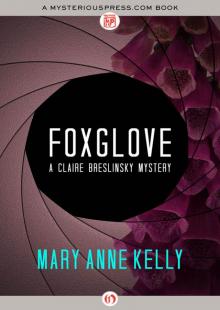 Foxglove
Foxglove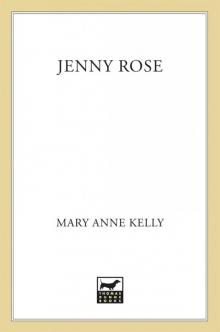 Jenny Rose
Jenny Rose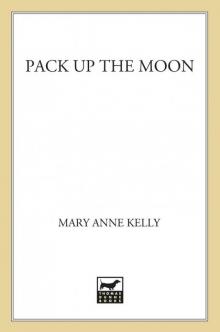 Pack Up the Moon
Pack Up the Moon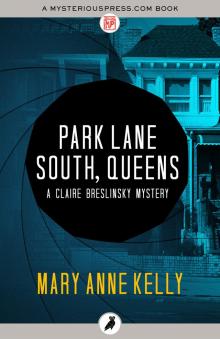 Park Lane South, Queens
Park Lane South, Queens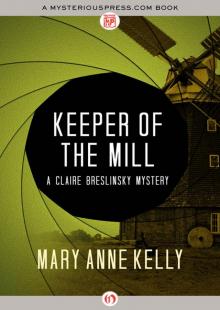 Keeper of the Mill
Keeper of the Mill Twillyweed
Twillyweed